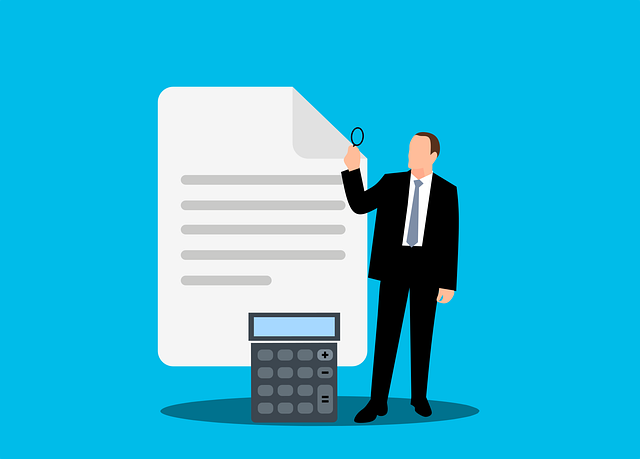Introduction to CPA & Forensic Accounting
Certified Public Accountants (CPAs) have traditionally been viewed as professionals focused on tax preparation, financial reporting, and audit compliance. However, the evolving landscape of corporate governance, regulatory scrutiny, and risk exposure has propelled CPAs into more investigative domains—specifically forensic accounting and fraud prevention. In this emerging frontier, CPAs are not just number crunchers but strategic investigators, legal collaborators, and guardians of financial integrity. Their expanding role in corporate investigations and litigation support underscores the increasing value of financial expertise in protecting businesses from internal and external threats.
Forensic accounting lies at the intersection of accounting, law, and investigative analysis. It involves the application of accounting principles to uncover financial misconduct, quantify damages, and reconstruct complex transactions. CPAs trained in this discipline often work alongside legal teams, law enforcement, and regulators to dissect financial data for signs of fraud, embezzlement, money laundering, asset misappropriation, and contract breaches. Their work is integral in both civil and criminal proceedings, where the accurate presentation of financial evidence can determine the outcome of trials, settlements, and regulatory actions.
Corporate Fraud and Role of a Investigations
Corporate fraud is neither rare nor confined to any one sector. As organizations become more digitized and globally dispersed, the potential for deceptive practices multiplies. CPAs engaged in fraud prevention adopt a proactive stance, implementing controls, monitoring systems, and risk assessments that detect irregularities before they escalate. This includes reviewing procurement processes, payment flows, access permissions, and compliance with internal policies. In many cases, CPAs serve as whistleblower resources or internal auditors tasked with identifying vulnerabilities and recommending remedial action.
In high-profile corporate investigations, forensic accountants like small business tax accountant Hogan CPA are often called to reconstruct financial records that have been altered or obscured. Their work may involve tracing funds through layered transactions, identifying patterns that suggest collusion, or reconciling inconsistencies between reported earnings and actual cash flows. Using both traditional auditing techniques and specialized software tools for data mining and visualization, CPAs illuminate financial truths hidden beneath intentional obfuscation. Their ability to translate numbers into compelling narratives makes them valuable expert witnesses in legal settings, where clarity and credibility are paramount.
Litigation Support
Litigation support is another dimension where CPAs contribute significantly. In disputes involving shareholder actions, breach of fiduciary duty, intellectual property infringement, or contract disagreement, CPAs quantify economic harm, assess lost profits, and provide valuation analyses. Their testimony can shape negotiations, settlement terms, and jury perceptions. These engagements require not only technical skill but also composure under cross-examination, fluency in courtroom procedures, and neutrality in presenting objective findings. CPAs who specialize in this work often pursue additional certifications, such as Certified in Financial Forensics (CFF) or Accredited in Business Valuation (ABV), to bolster their credentials.
Regulatory Laws & Responsibility
The regulatory environment is also driving demand for forensic accounting. Laws such as the Sarbanes-Oxley Act, Foreign Corrupt Practices Act, and Dodd-Frank provisions have heightened accountability standards and expanded the scope of financial disclosures. CPAs help organizations navigate these regulations by establishing compliance protocols, auditing internal controls, and responding to inquiries from oversight bodies. When allegations of misconduct arise, CPAs are often at the forefront of internal investigations, gathering evidence, coordinating with external counsel, and liaising with agencies such as the SEC or DOJ. Their ability to understand both business operations and legal frameworks positions them as indispensable assets in managing regulatory risk.
Fraud Prevention and Future
Technological innovation is enhancing the capabilities of forensic accountants. Advanced analytics, artificial intelligence, and digital forensics tools allow CPAs to analyze vast datasets for anomalies, trace digital trails, and detect fraudulent activity that manual reviews might miss. These tools can uncover connections between individuals, transactions, and entities that suggest orchestrated deception. As fraud becomes more sophisticated, the integration of technology into investigative accounting becomes not just advantageous, but essential.
The ethical dimension of forensic accounting is also profound. CPAs are bound by professional codes that prioritize objectivity, integrity, and confidentiality. In the context of fraud investigations, where reputations and livelihoods may hang in the balance, maintaining impartiality and discretion is critical. CPAs must navigate competing pressures—from corporate executives, legal teams, and stakeholders—while remaining committed to factual accuracy and ethical responsibility.
As the role of CPAs in forensic accounting and fraud prevention expands, education and training are adapting to match. Universities and professional organizations now offer specialized courses and certifications in forensic accounting, fraud examination, and litigation support. Continuing education ensures that CPAs stay abreast of evolving standards, legal precedents, and technological tools. Firms are creating multidisciplinary teams that blend accounting expertise with legal insight, cybersecurity, and behavioral analysis, reflecting the multifaceted nature of modern financial investigations.
Conclusion
Ultimately, the transformation of CPAs into investigative professionals signals a broader shift in how organizations approach financial integrity. In an era of increasing transparency demands, digital risk, and corporate accountability, forensic accountants play a pivotal role in safeguarding assets, restoring trust, and upholding justice. Their work does not merely serve the bottom line—it protects the very foundation on which ethical and sustainable business operations are built.








Leave a Reply